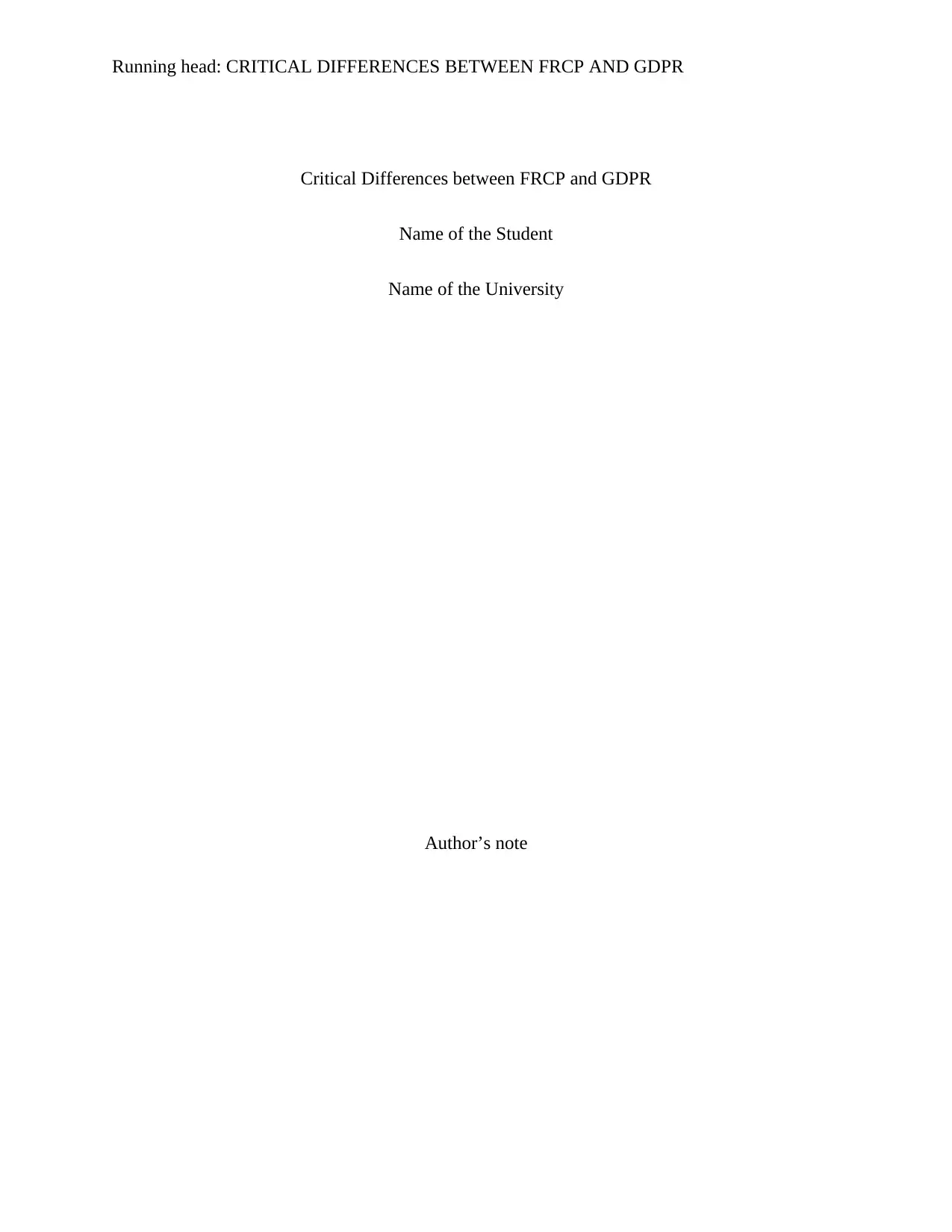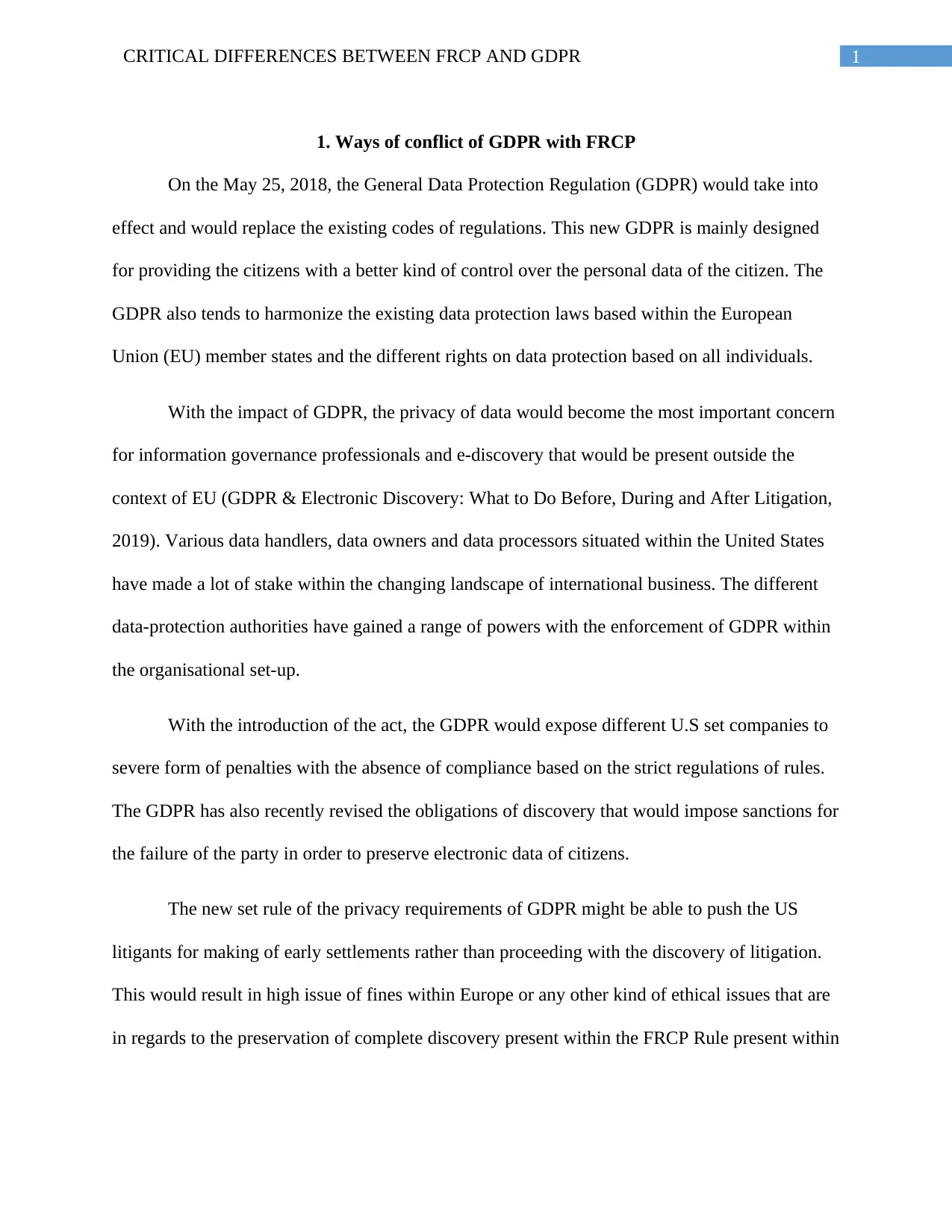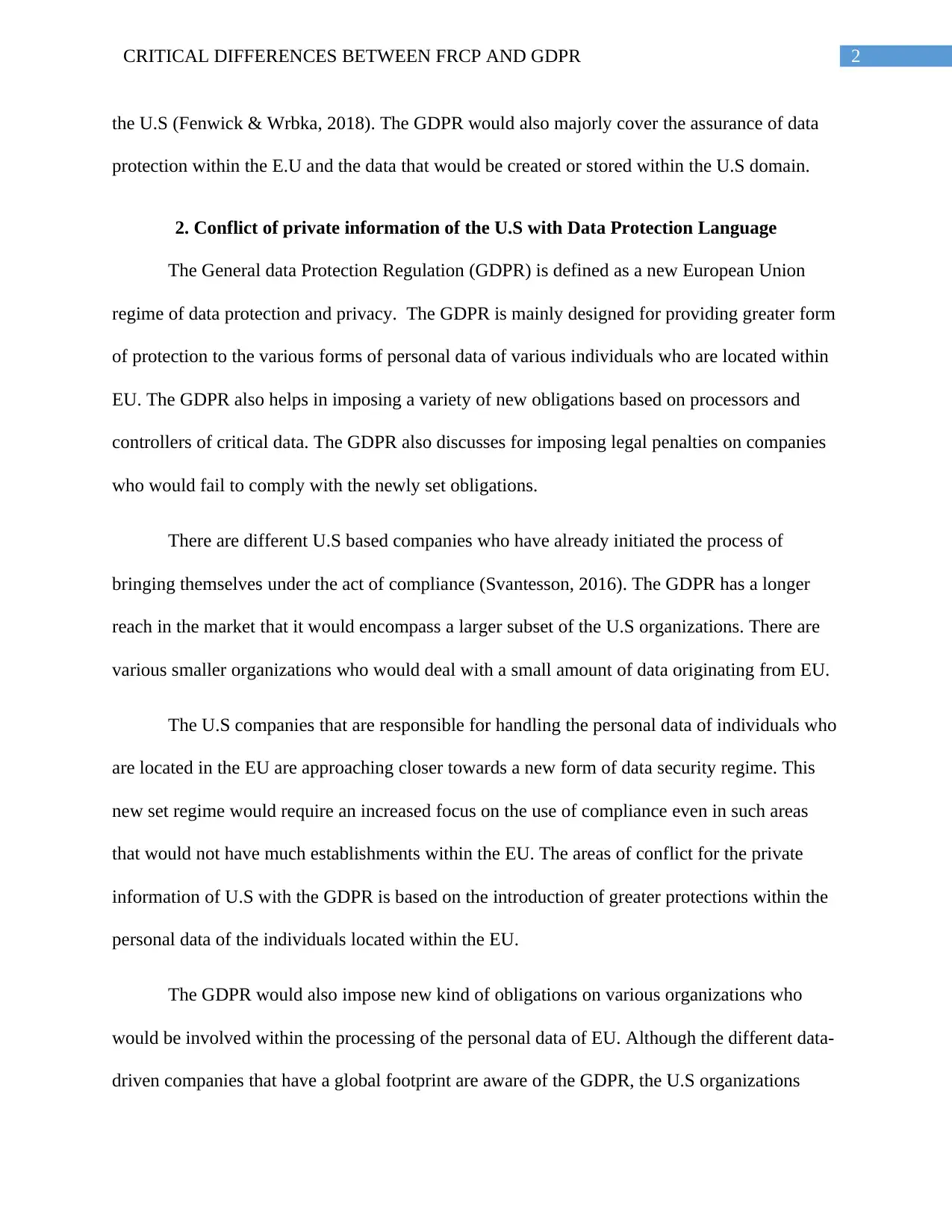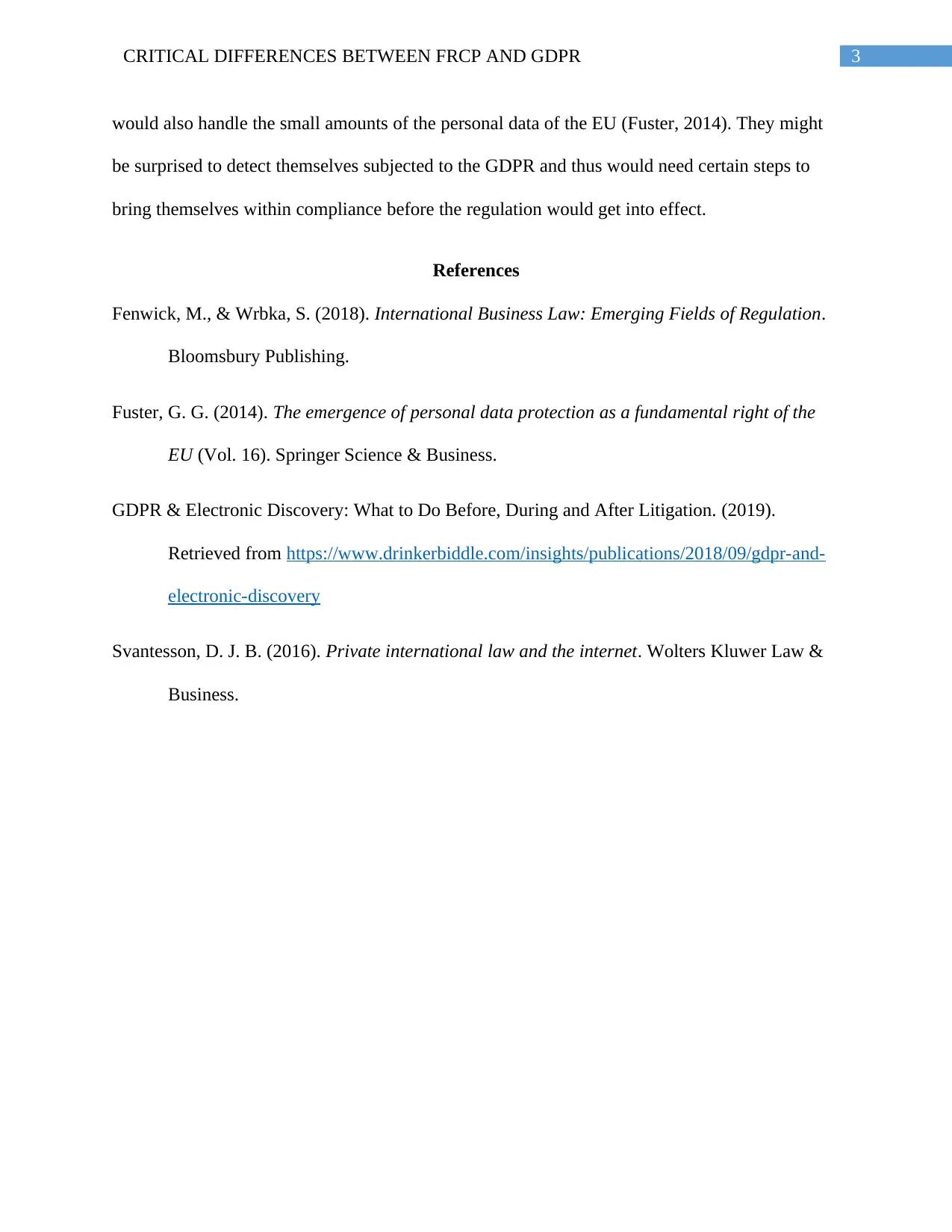Comparing FRCP and GDPR in Global Network Investigations
VerifiedAdded on 2023/04/24
|4
|865
|81
Discussion Board Post
AI Summary
This discussion board post analyzes the critical differences between the Federal Rules of Civil Procedure (FRCP) and the General Data Protection Regulation (GDPR), focusing on their impact on data privacy, e-discovery, and global network investigations. The assignment addresses how GDPR conflicts with FRCP regarding the discovery, disclosure, transfer, and processing of personal data, emphasizing the stricter data privacy protections in the EU compared to the United States. It explores how the U.S.'s approach to private information clashes with GDPR's stringent regulations, particularly in the context of international investigations. The post also highlights the importance of understanding these differences for professionals involved in global business and legal proceedings, emphasizing the need for compliance with both U.S. and EU laws. The assignment underscores the challenges faced by investigators when conducting e-discovery across national boundaries and the legal restrictions imposed by the EU Data Privacy Directive. It examines the different views on data collection, retention, and transportation, which require U.S. investigators to be well-versed in both U.S. and EU regulations.
1 out of 4











![[object Object]](/_next/static/media/star-bottom.7253800d.svg)